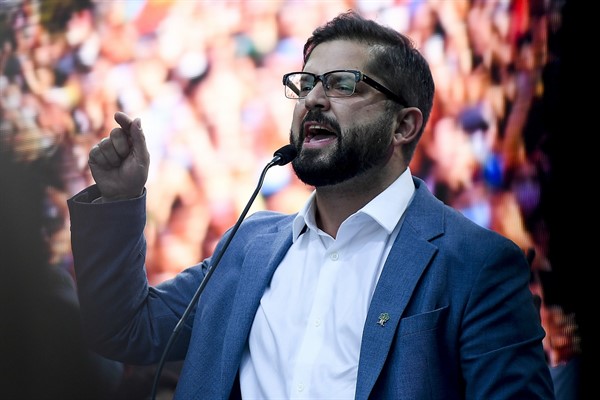In winning Chile’s presidential election on Dec. 19, Gabriel Boric set two new records. First, at the age of 36, he will become the youngest president in Chile’s history. Second, his tally of 4.5 million votes is the most ever for a Chilean presidential candidate.
These two new records are intimately related. Boric and his team represent a new generation of leadership, and as such, they were able to mobilize sectors of the electorate that had previously remained uninvolved in electoral politics. Since Chile’s transition to democracy in 1989, the country’s politics has been characterized by declining turnout levels. However, the second round of the presidential election, which took place Sunday, can be thought of as a turning point. More than 8 million people went to the polls, the highest level of electoral participation in Chile’s democratic era. Initial analyses of exit polls suggest that this increase was due to the massive mobilization of younger cohorts, particularly women and inhabitants of large cities, as well as socio-economically deprived groups that normally don’t participate.
As such, Boric’s rise to power already represents major change for Chile’s politics. But whether it will also augur major changes ahead depends on his ability to forge partnerships beyond the ranks of the far-left political family from which he has emerged.

